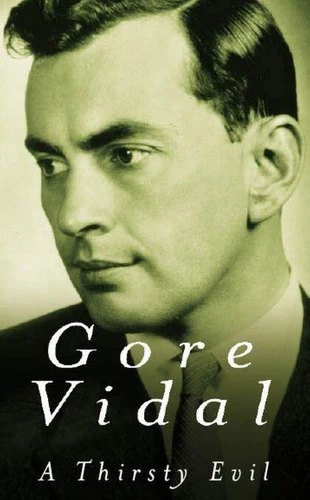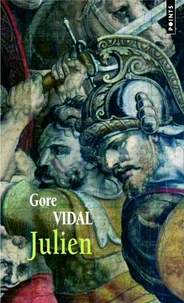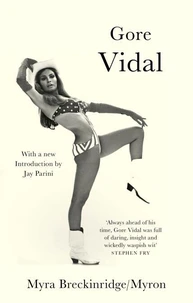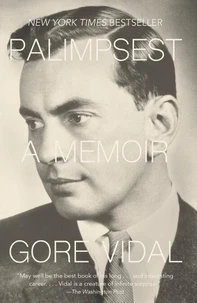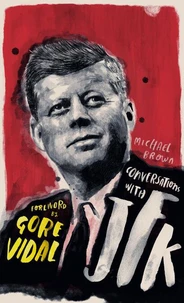Enfant terrible de la littérature américaine contemporaine, Gore Vidal, né le 3 octobre 1925, a une vingtaine dessais à son actif, mais aussi six pièces de théâtre et environ vingt-cinq romans. Il a débuté sa carrière dans les années 1950 en écrivant beaucoup pour la télévision et le cinéma, avant de se consacrer pleinement à la littérature. Cest avec « Un garçon près de la rivière » paru en 1948 qu'il se fait connaître car il ose aborder ouvertement le thème de lhomosexualité dans une Amérique encore bien puritaine. Depuis il est surtout connu pour ses grandes fresques historiques : « Julien » en 2006, « Empire » en 2008 ou « Lincoln » en 2010. Il ne faut pas passer à côté de « Palimpseste » paru en 2006, dans lequel il dresse une superbe galerie de portraits des personnalités quil a croisées dans la première partie de sa longue vie, et quil complète en 2008 par un deuxième tome « A lestime ».
A Thirsty Evil
Par :Formats :
Actuellement indisponible
Cet article est actuellement indisponible, il ne peut pas être commandé sur notre site pour le moment. Nous vous invitons à vous inscrire à l'alerte disponibilité, vous recevrez un e-mail dès que cet ouvrage sera à nouveau disponible.
Disponible dans votre compte client Decitre ou Furet du Nord dès validation de votre commande. Le format ePub protégé est :
- Compatible avec une lecture sur My Vivlio (smartphone, tablette, ordinateur)
- Compatible avec une lecture sur liseuses Vivlio
- Pour les liseuses autres que Vivlio, vous devez utiliser le logiciel Adobe Digital Edition. Non compatible avec la lecture sur les liseuses Kindle, Remarkable et Sony
- Non compatible avec un achat hors France métropolitaine
 , qui est-ce ?
, qui est-ce ?Notre partenaire de plateforme de lecture numérique où vous retrouverez l'ensemble de vos ebooks gratuitement
Pour en savoir plus sur nos ebooks, consultez notre aide en ligne ici
- Nombre de pages112
- FormatePub
- ISBN978-0-349-14850-2
- EAN9780349148502
- Date de parution12/12/2025
- Protection num.Adobe DRM
- Infos supplémentairesepub
- ÉditeurAbacus
Résumé
From the poignant realisation as an adult of the cruel brutality of childhood in 'The Robin', man then comes face to face with himself as a boy in 'A Moment of Green Laurel': both stories combining the nostalgia and fear that haunt us all in old age. Meanwhile, in 'Erlinda and Mr Coffin', Southern etiquette is unashamedly turned upside down in a tale of amateur theatricals reminiscent of Dickens and Victorian melodrama.
Yet it is in 'Three Stratagems', 'The Zenner Trophy', 'Pages from an Abandoned Journal' and 'The Ladies in the Library' (with more than a hint of Thomas Mann's Death in Venice in the latter) that we see Vidal as we know him best: cynical and provocative in these subtle tales of what was known in those days as 'sexual inversion'.
Yet it is in 'Three Stratagems', 'The Zenner Trophy', 'Pages from an Abandoned Journal' and 'The Ladies in the Library' (with more than a hint of Thomas Mann's Death in Venice in the latter) that we see Vidal as we know him best: cynical and provocative in these subtle tales of what was known in those days as 'sexual inversion'.
From the poignant realisation as an adult of the cruel brutality of childhood in 'The Robin', man then comes face to face with himself as a boy in 'A Moment of Green Laurel': both stories combining the nostalgia and fear that haunt us all in old age. Meanwhile, in 'Erlinda and Mr Coffin', Southern etiquette is unashamedly turned upside down in a tale of amateur theatricals reminiscent of Dickens and Victorian melodrama.
Yet it is in 'Three Stratagems', 'The Zenner Trophy', 'Pages from an Abandoned Journal' and 'The Ladies in the Library' (with more than a hint of Thomas Mann's Death in Venice in the latter) that we see Vidal as we know him best: cynical and provocative in these subtle tales of what was known in those days as 'sexual inversion'.
Yet it is in 'Three Stratagems', 'The Zenner Trophy', 'Pages from an Abandoned Journal' and 'The Ladies in the Library' (with more than a hint of Thomas Mann's Death in Venice in the latter) that we see Vidal as we know him best: cynical and provocative in these subtle tales of what was known in those days as 'sexual inversion'.

